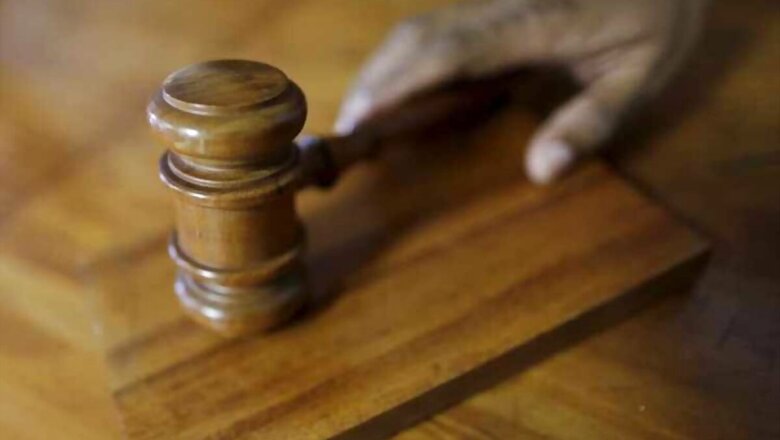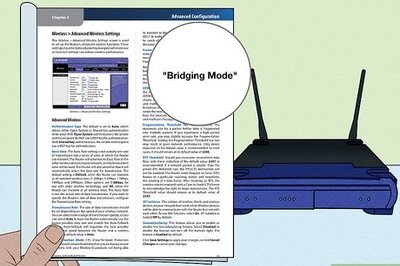
views
The Delhi High Court Friday dismissed a plea by former Congress municipal councillor Ishrat Jahan, booked under anti-terror law UAPA in a case related to communal violence in northeast Delhi in February, challenging an order that extended by 60 days the time for completing the investigation.
Justice Suresh Kumar Kait said there is no illegality or perversity in the trial court's order. "Finding no merit in the present petition, the same is accordingly dismissed with no order as to costs," the high court said.
Jahan, who was arrested on February 26, has challenged the trial court order extending, beyond the 90 days mandated under UAPA, the time for completing the investigation by two more months. Delhi Police has opposed the plea saying that the high court should not intervene in the matter as far as the order of the additional sessions judge, extending the time to probe the case, is concerned as there was no infirmity in it.
The high court said the trial court judge had passed the June 15 order after going through the mandate of the provisions of the law and after recording his satisfaction. "In view of the facts recorded above and the settled legal position of law, I am of the view that the public prosecutor had moved an application, for extension of time to file charge sheet, after going through the whole matrix of the case and after satisfying himself as per the law as enumerated in the second limb of Section 43(D)(2)(b) of the Unlawful Activities (Prevention) Act, 1967.
"Learned judge also after going through the facts and circumstances and mandate of provisions of law of the Act mentioned above and after recording his satisfaction had passed impugned order. Therefore, I am of the view that there is no illegality or perversity in the said order," Justice Kait said in a 19-page judgement. The high court said the trial court judge has in unequivocal terms held that that there exist sufficient reasons to extend the period of investigation, detention of the accused beyond the period of 90 days as contemplated under the UAPA.
"The satisfaction of the court for extension of the period of investigation is clearly recorded in the impugned order dated June 15. This satisfies the requirement of section 43-D of UAPA," it said. The high court added that it was apparent that the trial court formed an opinion on the basis of submissions, perusal of case diary and report of the prosecutor, which was duly examined to satisfy the requirements of law that what the progress of investigation was and the specific reasons for detention of the accused beyond the period of 90 days.
It added that the trial court has considered all relevant circumstances for passing the order granting extension of period of investigation. It noted that the similar issue came before the coordinate bench of the high court in JNU student Sharjeel Imam's UAPA case and his plea was dismissed while upholding the trial court order by which time for investigation was extended.
Imam was arrested in relation to his alleged instigating speeches during the anti Citizenship (Amendment) Act and National Register of Citizens protests. The high court on July 20, had reserved order on Jahan's plea challenging the trial court's June 15 order granting a 60-day extension to police to complete its investigation against her and activist Khalid Saifi.
Jahan had sought setting aside the trial court's order, saying it was "erroneous, bad in law and wrong on facts" and against the democratic and fundamental rights guaranteed by the Constitution. Her counsel had contended that the prosecutor had not applied his mind while filing the application in the trial court. The trial court, in its June 15 order, had said the prosecution had set out a case for extension of the statutory time period to conclude the investigation but the investigating officer was not divested of his obligation of concluding the probe expeditiously.
The trial court was informed that Saifi had allegedly travelled outside India and met persons including fugitive Zakir Naik, controversial Islamic preacher, to get funds for spreading his agenda and the investigation regarding this required more time. The trial court, which granted time till August 14 to conclude the pending investigation, had noted the police contention that Saifi got suspicious funds through an NRI account of a person, who is serving in Singapore, in the account of an NGO which he is running in partnership with his friend.
The police had sought extension of time till September 17 for concluding investigation against Jahan and Saifi, under section 43D (2) (b) of the anti-terror law. Section 43-D (2) of Unlawful Activities (Prevention) Act (UAPA) provides that if it is not possible to complete the investigation within the 90 days period, then upon the report of the public prosecutor indicating the progress of the probe and the specific reasons for the detention of the accused beyond the 90 days period, after satisfaction, the court can extend the period of probe to 180 days.
Communal clashes had broken out in northeast Delhi on February 24 after violence between citizenship law supporters and protesters spiralled out of control leaving at least 53 people dead and scores injured.




















Comments
0 comment